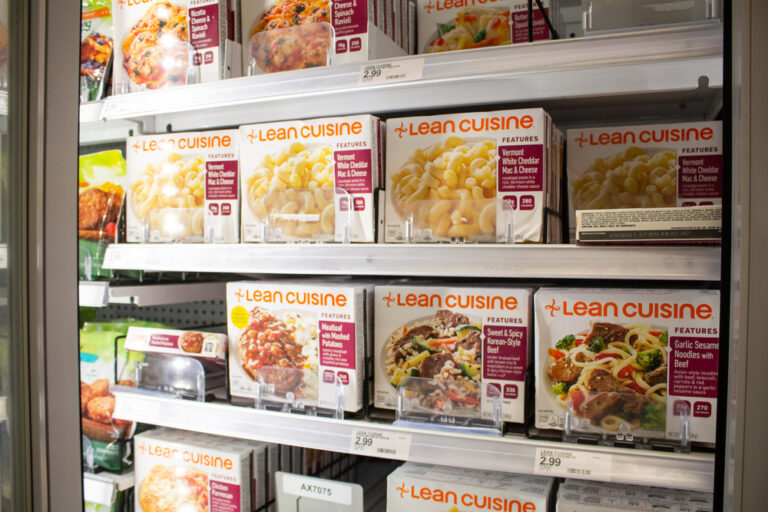Learn to spend less with The Pricemakers’ holiday overspending tips!
Welcome to the season of joy, festivities, and, unfortunately, frequently overspending. The holidays bring a magical ambiance, filling the air with the scent of pine needles and gingerbread, the sound of cheerful music, and the sight of twinkling lights everywhere you look.
But they can also cast a financial spell that leaves our wallets much lighter than we planned. This seasonal pressure, amplified by dazzling advertisements and perfectly curated social media feeds, can easily lead to a post-holiday financial hangover. So, we came up with a list of holiday overspending tips to help you out and reveal valuable insights on where your hard-earned cash might easily be slipping away unnecessarily.
These holiday overspending tips aren’t just about budgeting in the strictest sense; that can feel restrictive and dull. Instead, think of them as a roadmap to financial mindfulness during this special time of year, considering it’s easy to get carried away with the spirit of decorating and giving. It’s about making conscious choices that align with your values and your bank account.
But understanding where you might be wasting money is the first step toward a merrier and more financially responsible holiday season. Recognizing these common spending traps ahead of time empowers you to navigate the festive temptations with a clear head and a solid plan, ensuring your joy isn’t followed by January’s credit card statements of doom.
So, grab a cup of hot chocolate, get settled into your favorite comfy blanket, and uncover the secrets to smart spending amid the holiday cheer. Let’s create a season that’s rich in memories and happiness, not in debt. This is about reclaiming the holidays for what they truly are: a time for connection, not just consumption.
Brace yourself for a reality check as we explore 17 holiday overspending tips and common areas where many of us fall victim to overspending during the festive season. You might be surprised at how small, mindful changes can make a massive difference to your bottom line.

Holiday overspending tip: You don’t really need an enormous Christmas tree
Suppose you’ve had a really terrible year. You might’ve lost family or moved to a different location, and your children or grandchildren are troubled. The temptation to “go big or go home” with the holiday centerpiece is strong, a desire to paper over the sadness with sheer festive volume.
So, to cheer everyone up, you go out and get an enormous tree that doesn’t actually fit in your home, and now you have to obviously go back to the store for more lights. And more ornaments to fill the vast branches. And probably a new, sturdier tree stand because the old one looks like it’s about to buckle. You’ll all talk about it for years, sure.
But you only really need that experience once, and part of what makes it fun is the grinning realization that having a humongous plant dominate your living area is a terrible idea. You don’t need a Clark Griswold-sized Christmas tree to have a memorable holiday season. In fact, a smaller, more manageable tree can be just as charming and significantly less stressful to set up and take down.
You might even be able to have a great Christmas with an artificial tree, as blasphemous as that may sound to some Christmas die-hards! Think of the long-term savings; a quality artificial tree can last a decade or more, saving you money year after year. Our holiday overspending tip is to leave the giant trees in the forest and picking something more appropriate for your own home. Your ceiling, your back, and your wallet will thank you.
Holiday overspending tip: Don’t rely on credit cards
Unless you’re assertive about paying off your credit card on time and in full, using plastic for your holiday expenses can leave you in a mountain of debt once Santa’s gone and the glitz has cleared. The allure of “buy now, pay later” is strong, but the interest that accrues can turn a reasonable holiday budget into a year-long financial burden. We recommend establishing a clear budget for the season.
This includes everything from food to decor and gifts, and sticking to it as best you can. A great way to enforce this is by using the envelope system: withdraw your budgeted cash and divide it into labeled envelopes for each spending category. When an envelope is empty, you’re done spending in that area. Use debit or cash to help you stay on track and give your credit card a much-needed break. The tangible nature of cash makes the spending feel more real, which can naturally curb impulse purchases.
Holiday overspending tip: Don’t overdo it with greeting cards
Stocking up on holiday greeting cards can leave you shocked at what you’ve spent. Between the beautifully embossed, glitter-dusted cards and the ever-increasing cost of postage stamps, a seemingly small expense can quickly balloon. And you’ll probably be left with too many anyway by the time you’re done with all that well-wishing.
We recommend making a list of people you’d like to send a greeting card to out-of-town friends, business contacts, and family, a breakdown of people you know will really appreciate the gesture. For everyone else, consider a thoughtful, personalized email or a festive social media post. This approach is not only cheaper but also more environmentally friendly.
This might mean skipping that 4th cousin whose name you can hardly remember. So get choosy! A heartfelt, handwritten note on a simple card for your closest loved ones means more than a generic signed card for dozens of acquaintances. And don’t worry. Santa won’t kick you off the “nice list” for keeping your budget on track!
Holiday overspending tip: Not planning your shopping trips
Tackling the holiday crowds at the mall without a plan is one of the most expensive mistakes you can make during the holidays. It’s a recipe for what’s known as “decision fatigue.” Overwhelmed by choices, noise, and people, your brain looks for the easiest path forward. Chances are, without a plan, you’ll end up impatient and exhausted, buying whatever you can to get yourself out of there.
This usually means overspending and missing good deals, leaving you feeling worse about what you’ve purchased and how much you’ve spent. You should make your list – and check it twice! A well-thought-out plan is your best defense against the chaos.
Before leaving the house, take the time to write down a list of each person you’ll be buying for, specific gift ideas, and a strict budget for each one. Then, look at your list. What mall or shopping center allows you to cover the most ground with the fewest stops? Try to map out your route through the stores to be as efficient as possible.
What stores will help you cover more than one person? Doing this will save you both time and money in the long run. Also, consider shopping during off-peak hours, like weekday mornings, to avoid the worst of the crowds and the stress that comes with them.
Holiday overspending tip: Don’t buy cheap lights
There’s something magical about the holidays that makes you want to buy thousands upon thousands of poorly-made electric wires to wrap your flammable house with. It’s an odd tradition when you really think about it, isn’t it?
Most everyone puts up a little decoration somewhere, but every city and town has one who can’t seem to control themselves with the lights…don’t be that person, especially if you’re on a budget. The electricity bill alone can be frightening.
While we suggest cutting down on the NUMBER of lights you’re buying to save some money, we definitely don’t recommend cutting down on the QUALITY of the lights you’re purchasing. Cheaper lights are often poorly constructed, with thin wires and flimsy bulbs that are prone to breaking or shorting out.
Dollar store lights might sound like a steal, but you’ll be singing a different tune when you have to shell out loads of cash to repair the damage from a house fire! Or when you spend hours trying to find the one dead bulb that has knocked out the entire string. Invest in good-quality, certified LED lights. They are far more energy-efficient, last for many seasons, and are much safer, making them a smarter and more economical choice in the long run.
Holiday overspending tip: Not organizing your charity donations
Hear us out on this holiday overspending tip: we’re ALL FOR the charity of the season. The spirit of giving is what the holidays are truly about. And there’s nothing we condone more than donating to those less fortunate than us, especially during this time.
But if you don’t stay on top of your budget, even in the charity department, you’ll wonder where all those good intentions went! It’s easy to drop a few dollars in every red kettle and round up every purchase at the checkout, but these small, unplanned donations can add up to a significant, unaccounted-for sum. We recommend making another list and writing down the charities near and dear to your heart.
By each one, mark down the total amount you can afford to spend for the entire season, divvying that number to each charity as you wish. This allows you to make a more impactful, planned contribution rather than a series of small, impulsive ones. If you’d like to donate more, you can pull from your gift budget and donate in the names of those you’d otherwise be buying gifts for.
This would be a beautiful way to keep your gifting in the true spirit of the season! Many people prefer a donation in their name to a physical gift they may not need, especially if the cause is one they care about deeply.
Holiday overspending tip: Forget about “Christmas” candles
We all love candles, especially those that smell like Christmas. The flickering flame and the scent of fir, cinnamon, or gingerbread can instantly make a room feel cozier and more festive. But the truth is that Christmas-themed candles are a total scam. Companies are looking for any reason to hike up their prices.
And the holidays are the perfect time to pump out green and red candles with names like “Winter Wonderland” or “Mistletoe Kiss” to trick those who want to get into the Christmas spirit. They put them in fancy jars with holiday motifs and double the price of an identical product from September.
Many of the most common Christmas candle scents, like cedar and cinnamon, are available year-round at a lower price without the extra Christmas packaging and colors. For an even more budget-friendly option, try simmering a pot of water on the stove with cinnamon sticks, orange peels, and cloves for a natural, home-filling aroma.
Is that candle going to smell less Christmas-y if you bought it in August at a more reasonable price instead of paying a premium for it in November or December? No. Plan ahead, buy your pine-scented candles off-season, and enjoy the same festive feeling for half the price.
Holiday overspending tip: You don’t need to buy gifts for distant family
Many families do a “name out of a hat” gift exchange to manage the sheer number of people. Amid something like this, it’s easy to compensate for not knowing your extended family by spending too much money on something you think is ideal, like a fancy kitchen gadget or a high-end scarf.
But why not put away all that money and look through your relatives’ social media pages to get a sense of their wants, hopes, dreams, and needs instead of wasting money on a juicer they’ll never use? A little bit of thoughtful research can lead you to a more personal and often less expensive gift. A book by their favorite author or a gift card to their favorite coffee shop shows you pay attention.
If your relatives are reasonable people, we imagine they don’t expect or want you to go broke because of them. In fact, many large families are now opting out of gift exchanges altogether, choosing instead to pool money for a shared experience like a nice dinner out or a family vacation.
Also, going with an expensive gift for someone you don’t know that well can make things awkward if everyone else’s presents are much more affordable than yours. It can create unintentional pressure and discomfort. Set a spending limit when you draw names to ensure this doesn’t happen, and stick to it.

Holiday overspending tip: Don’t over-spend… on yourself!
We’re not judging, but this time of year signifies A LOT of shopping, both online and in-store. This is the classic “one for you, one for me” trap. And that can mean a lot of wasted time spent scouring the racks for promos and deals, which exposes you to countless temptations.
Coming across so many great discoveries, it’s only natural you’d want to pick up a little something, or a lot, for yourself. You’re already in a “spending” mindset, and the endless sales make it feel like you’re saving money, even though you’re actually spending money you hadn’t planned to.
So before you find yourself with more gifts “from you to you” under the tree, remember this holiday overspending tip: now is the time to stay focused on your loved ones and list, just as they’re doing for you. A great tactic is to keep a “wish list” for yourself. If you see something you love, add it to the list instead of your shopping cart. You can share this list with others, or revisit it in January when the post-holiday sales are even deeper.
Stay on track and, if you must, indulge in those post-holiday sales or maybe a post-holiday vacation after the chaos ends as a reward! This delayed gratification will feel much sweeter without the guilt of having blown your gift budget.
Holiday overspending tip: Don’t put up too many outdoor decorations
Blame it on characters like Clark Griswold, the overeager light-stringer of “National Lampoon’s Christmas Vacation,” but one thing is for sure: Lots of us go over the top in decking our halls from Halloween to Christmas. The pressure to have the most festive house on the block is real, but it comes at a steep price.
When you consider both their price and the cost of the electricity to power them, decorations, especially those for the outdoors, are one of the easiest ways to blow your monthly budget. Those giant inflatable snowmen, projector lights, and motorized reindeer can cause a shocking spike in your January utility bill.
Reduce your expenses by DIYing your outdoor decor with simple garlands, natural wreaths, and only a few strategically placed strings of holiday twinkle lights. A classic, elegant look can have more impact than a chaotic jumble of blinking lights. Gather some pinecones and spray-paint them silver or gold for a chic touch. Use a timer for your lights so they are only on for a few hours each evening, saving energy and money.
Holiday overspending tip: Don’t overcommit to holiday social events
This year, your holiday social calendar might not be fully booked yet. Still, during the holidays, it seems like every time you turn around, there’s yet another neighborhood party, family get-together, office gathering, or some other festive shindig. The fear of missing out can lead us to say “yes” to everything.
For most of these events, you bring food or drinks to share or pick up part of the tab. These costs, along with potential expenses for a new outfit, transportation, or a babysitter, add up quickly. To save some cash and free up your calendar, try to only commit to the parties you’re genuinely excited to attend. It’s okay to politely decline an invitation. Protecting your peace and your finances during a hectic season is a form of self-care.
Holiday overspending tip: Don’t buy too much alcohol
Some people buy a ton of alcohol to ensure they’re the best party host in their group. The pressure to offer a fully stocked bar with every possible spirit, wine, and beer can be immense. Others might need it to put up with Uncle Jack’s racist rants at the dinner table. Whatever the reason, be savvy about how much you’re buying and how much you consume.
We understand there’s no harm in getting a little inebriated for a special occasion like Christmas, but will the holiday be ruined if you’ve got no booze on your table, not to mention a little extra cash in your back pocket? Instead of a full bar, consider offering one or two “signature” holiday cocktails, like a large-batch mulled wine or a festive punch, along with beer, wine, and plenty of non-alcoholic options.
You really don’t need a fully stocked bar to throw an amazing Christmas party. For more casual gatherings, a “Bring Your Own Beverage” (BYOB) approach is perfectly acceptable and takes the financial pressure entirely off the host.
Holiday overspending tip: Don’t buy top-of-the-line wrapping paper
It’s very easy to spend too much money on wrapping paper. You walk into the store and are immediately seduced by the thick, glossy paper with perfectly matching ribbons and bows. You might get carried away by your inner Buddy the Elf, or perhaps you got pressured into it by adorable kids or grandkids as part of a school fundraiser.
Whatever the cause, you’re likely putting too much money into something that will get ripped apart and instantly recycled if not tossed in the trash. Worse, most of that fancy paper with glitter and foil coatings isn’t even recyclable and goes straight to a landfill.
You could go the old-school route and scream at everyone to open their presents carefully so the paper can be reused, but that won’t win you any brownie points at Christmas. Instead, get creative and eco-friendly. Use children’s artwork, the Sunday comics, old maps, or plain brown kraft paper that you can decorate yourself with stamps or drawings.
Just go with the low-cost, dollar-store stuff and let everyone tear into their gifts without worrying about wasting cash. Or better yet, invest in a set of reusable fabric gift bags that you can use year after year, saving money and the planet.
Holiday overspending tip: Forget about those ugly Christmas sweaters
The “Ugly Christmas Sweater” was a beautiful tradition. It was pure, it was genuine, it was hilarious. But it was ultimately over-commercialized and ruined, like so many good things.
The true meaning of the Ugly Christmas Sweater was that it was given to you by a great aunt or found at a thrift store and worn out of sheer respect and wonder at its awfulness. It was an authentic piece of kitsch with a story.
But in our post-irony society, you can now buy “hilarious,” deliberately ugly sweaters from companies for terribly elevated prices. These mass-produced items are often poorly made and lack the soul of a true vintage find. At this point, they’re so cliched that they aren’t worth the cash you spend on them. If you want an ugly Christmas sweater, try taking up knitting! Or, host a DIY ugly sweater party where everyone brings an old sweater and decorates it on the spot.
Holiday overspending tip: Don’t be fooled by express shipping
Don’t pay too much for shipping during the holiday season. In the age of Amazon Prime, we’ve become accustomed to fast, free shipping, but when you’re sending packages yourself, the costs can be astronomical. If you plan on shipping gifts to your family and friends this year, you’ll already be burning a hole in your wallet. And this cost can increase if you make any of the classic shipping mistakes, like waiting until the last minute.
If you cannot be with your family and friends during the holidays, you’re probably intimately familiar with the headaches that shipping Christmas gifts across the country can create. However, there’s no need for all the stress and expenses of trying to deliver something quickly. Panic is a budget’s worst enemy.
You have a few options for saving money in the shipping category. If you’re an early bird, you could get your presents shipped off long before Christmas using slower, cheaper ground services, so you know they’ll arrive on time. Set a personal deadline for yourself in early December and stick to it.
And if you’re a procrastinator, pick an inexpensive shipping option and warn your recipients that their gift may be a day or three late. We promise it won’t ruin Christmas for someone to open another gift a couple of days later! Alternatively, consider shipping gifts directly from online retailers, as they often have better shipping rates than you can get as an individual.
Holiday overspending tip: Forget about white elephant presents
Gift-giving can be a wonderful opportunity to show someone how much you care and how well you know them. It’s a chance to be thoughtful and personal. But then there are times when you have to buy a present due to social obligations somewhere, like an office party or a casual friends’ gathering.
The issue with the white elephant is that it’s innately senseless because you don’t know who’s going to get your present. The entire concept is built on impersonal, often wasteful, consumerism.
You either have to come up with something generically interesting within the price limit and risk it winding up with someone who doesn’t like it, or you can go the novelty route with a gag gift that gets a five-second laugh before ending up in the trash. No matter the case, the odds of filling a void in someone’s life with your gift are slim to none, so try not to overspend.
If you must participate, suggest a “re-gifting” theme, where everyone brings something they already own but no longer use. Or, advocate for a different activity, like a potluck or a group donation to charity, which can be far more meaningful. And since we’re on the topic, Amazon has some great finds if you’re looking for inexpensive generic gifts to give. Here’s one of our favorites: Yankee Candle Balsam and Cedar Scented.

Holiday overspending tip: Don’t be fooled by holiday flavors
Somehow, commercials have convinced us that peppermint and gingerbread are only acceptable for a couple of months out of the year. This is a classic marketing tactic: manufactured scarcity. They know that if they keep a lid on these items until late November, we’ll gorge ourselves once we’re given the chance, paying a premium for gingerbread lattes and peppermint bark.
We all love a good mulled cider, so why not enjoy it all year round rather than splurging during the tiny window “society” tells us to? At the very least, stock up on these iconic Christmas flavors before the holiday. You can make your own festive treats and drinks at home for a fraction of the coffee shop price.
As we mentioned earlier, companies love to throw a little green and red on their packaging as an excuse to mark up the price of their items. This applies to everything from coffee creamer to cookie dough. But will a wreath on the package make your cinnamon sticks taste any more Christmas-y? Be a savvy shopper and look past the festive packaging to the actual product and price.
Have YOU ever been guilty of doing the things we mentioned? Be sure to share your thoughts with us on these holiday overspending tips in the comments section below. We’d love to hear your own war stories of holiday spending and your best tips for keeping costs down!
But don’t go away just yet. The Pricemakers has much more to offer its readers. Our goal is to help you make smarter financial decisions all year long, with expert advice on everything from daily savings to major purchases. For example, we highly recommend also reading: Do You Love Online Shopping? See Here the Major Pros and Cons














